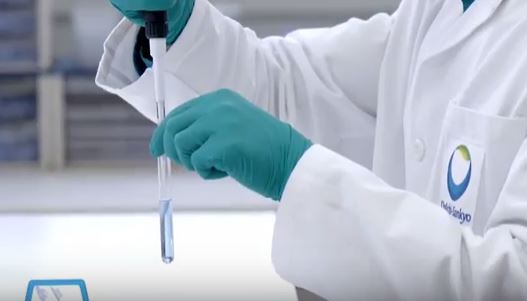Daiichi Sankyo denies AstraZeneca takeover report

Daiichi Sankyo has denied reports that it refused a takeover bid from AstraZeneca last year, and handed back an anti-vomiting painkiller to a US biotech after rejection from the US regulator.
The Japanese pharma issued a sparsely-worded statement denying a report from the online edition of the Nikkei Business magazine, that it had rebuffed a takeover approach from the Anglo-Swedish pharma last year.
Noting the report, which was picked up by news outlets across the world, Daiichi said in its statement that “this is not the fact.”
The report had caused trading in shares in the Japanese pharma to be temporarily suspended on the Tokyo stock exchange after a sudden peak in value.
And in a separate development, US biotech Charleston Laboratories said Daiichi had handed back rights to its hydrocodone pipeline following an FDA rejection in February.
The FDA rejected CL-108 – a combination of hydrocodone, acetaminophen and promethazine – which was intended for management of severe pain without inducing vomiting.
But after rejection for undisclosed reasons, Daiichi has walked out on a 2014 collaboration agreement giving it US marketing rights, with Florida-based Charleston supplying the drug and co-promoting CL-108 other hydrocodone drugs in the US.
Charleston said it plans to re-file the drug in the coming weeks for patients requiring an opioid analgesic while preventing or reducing opioid-induced nausea and vomiting.
The FDA does not reveal reasons for rejecting drugs, and in this case, the manufacturers revealed no details about why the regulator issued a dreaded "complete response letter".
However, the FDA is currently attempting to tackle the opioid addiction epidemic sweeping some parts of the US and new commissioner Scott Gottlieb has made finding alternative painkillers a priority.
It has already convinced Endo Pharmaceuticals to voluntarily remove its Opana ER from the market because of concerns it lacked enough safeguards to prevent it being abused.
On the other hand, the FDA has fast-tracked development of Eli Lilly and Pfizer's tanezumab anti nerve growth factor painkiller as part of its quest to find opioid alternatives.
Charleston argues that by allowing patients to relieve pain without vomiting, they will have shortened recovery time and fewer days on opioid medication.
CEO Paul Bosse said: “Through decreasing a patient’s use of opioids, we aim to reduce the risk of misuse and abuse. Charleston Laboratories is dedicated to ensuring safe and responsible prescribing and use of our opioid analgesic portfolio.”












